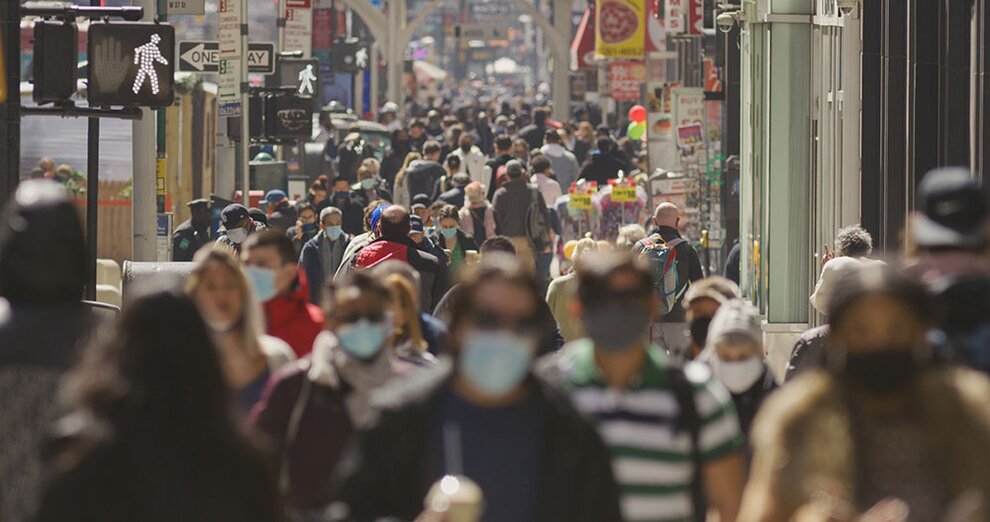The Socio-economic impact of Coronavirus on India: What kind of Recovery is There?

The next session of the BRICs seminar will be held Wednesday, December 15th 2021, 4:30 pm (online)
Speaker: Prof. Arun Kumar (Institute of Social Sciences, New Delhi).
Click on the link to the event
Abstract
India was the most impacted economy out of the G20 countries with a shrinkage of 24% in GDP in April to June 2020. As unlock took place starting June 2020, recovery was also expected to be equally sharp. Complacency set in. The government and the people relaxed so when India was struck by a most severe second wave from March 2021 it played havoc with the people, especially those outside the metros. Since July 2021 India is recovering from the impact of the second wave.
The talk will cover the problems in data for analysis of the decline and the recovery given that the Indian economy consists of a very large unorganized sector which has been declining since demonetization in 2016. This sector declined even more sharply during the lockdown and the second wave. The data for this sector comes only once in 5 years so it is assumed that it is growing more or less at the same rate as the organized sector. This assumption does not hold anymore since the two components are moving in the opposite directions.
Alternate data has to be used to assess the impact on the unorganized sector and on the GDP. The official GDP data is incorrect in many ways. International agencies also use government data since they are not data gathering agencies. So, their forecasts are similar to those of the government and therefore they reproduce the flaw in the government data.
The impact and the recovery are uneven across the two sectors, even within the organized sector. For various reasons the stock markets have boomed and inequalities are on the rise. Government used `supply side’ policies rather than taking care of those severely impacted. But these policies cannot help quick recovery since demand is short. If at all they deliver, it will be in the medium and long term but the problem is immediate.
There is serious impact on employment, health, education and various other aspects of society. The supply side policies pushed pro-corporate sector policies that have led to the biggest year long agitation by farmers. Public sector workers are protesting privatization and monetization of public assets. Thus there is considerable turmoil. There is also serious inflation in the midst of loss of employment and incomes.
We are headed to a New Normal and how will India deal with them is another issue that needs to be addressed. The talk will cover some of these issues.
Learn more
Prof. Arun Kumar is Malcolm Adiseshiah Chair Professor at the Institute of Social Sciences, New Delhi, and author of "Indian Economy's Greatest Crisis" and "Demonetization and the Black Economy", Penguin Random House
Here is a presentation of "Indian Economy's Greatest Crisis" :
Desperate times call for desperate measures.’ The outbreak of COVID-19 aptly justifies this expression as the world faces an unprecedented situation. But what is so unusual about the coronavirus, especially since viral attacks-H1N1, Ebola and Nipah-have taken place earlier as well? How has it affected India and the world? What are the socio-economic implications for India? How has India’s response been to the coronavirus? What is more important-life or livelihood? How can India recover from the sudden economic shock caused by the pandemic?
This book is an attempt to answer these and many more such questions.
The coronavirus hit the world in December 2019 like a hurricane. What started as a medical emergency soon turned into an economic one. No global financial crisis has ever hit humanity as hard as COVID-19. The world, therefore, was caught ill prepared when the pandemic struck. The situation, to say the least, is worse than a war. The situation in India is no different: In terms of the number of cases reported, it is second only to the United States.
This book highlights the enormity of the impact of the coronavirus pandemic on India. It critically examines the government’s efforts to control the disease and mitigate its adverse effects on Indian economy and society. Making a compelling argument that an economy is not like a rubber ball, which, if dropped on a hard surface, will bounce back to its original position, the author provides incisive reasons to why economic recovery will be slow and not ‘V-shaped’. He, however, cogently suggests that good governance, a robust public-health system, and clean and representative politics are key to bringing India’s economy back on track.
Prof. Arun Kumar has also published numerous posts and articles on the recent evolution of Indian Economy, incuding the following:
- “Shadows of the Pandemic: What the Latest GDP Numbers Tell us about the Nature of India's Recovery”. The Wire. 5 December, 2021. It is at: https://thewire.in/economy/covid-19-pandemic-india-economy-gdp-numbers-recovery
- With the Omicron Variant, Let’s Hope for the Best and Prepare for the Worst. The Wire. 4 December 2021. https://thewire.in/health/with-the-omicron-variant-lets-hope-for-the-best-and-prepare-for-the-worst
- This path of development is toxic. Mainstream. 19 November 2021.It is at: http://mainstreamweekly.net/article11787.html
- Stolen Tax Havens Papers Reveal the Rich are the New Colonizers. HW News, October 18, 2021. It is at: https://hwnews.in/news/national-news/stolen-tax-havens-papers-reveal-rich-new-colonizers/169340
- Panel discussion on Demonetization on Mirror Now. It is at: https://www.youtube.com/watch?v=2JAXDzW1YOw
- Interview on Demonetization and Black Economy in English on HW News with Mr. Sujit Nair. It is at: https://www.youtube.com/watch?v=qELSFa5NtYc
- Short Interview on Demonetization by Centre for Financial Accountability. It is at: https://youtu.be/WsE7ihUSvYA
- Article on 5 years after demonetization in the Scroll. It is at: https://scroll.in/article/1009871/five-years-later-its-even-more-clear-that-demonetisation-was-a-disaster-for-india
- Article on what is wrong with our GDP data, especially with the 2021-22 Q1 GDP data which is an overestimate. The Economic shocks have impacte the methodology of estimation. It is in The Leaflet at: https://www.theleaflet.in/2021-22-q1-gdp-data-overestimates-economic-shocks-question-methodology/
- Article in The Hindu. October 13 on the Pandora Papers and the Global Financial Architecture. It is at:HTTPS://WWW.THEHINDU.COM/OPINION/LEAD/TAKING-THE-LID-OFF-ILLICIT-FINANCIAL-FLOWS/ARTICLE36974015.ECE.
- Article in Hindi on Oct. 13 re the Dramatically rising stock markets, growing instability and concerns. It is in the Hindustan at: https://epaper.livehindustan.com/Home/MShareArticle?OrgId=1310473aeb61
- In Hindi an article on Oct 5, re. The revelations in the Paradise papers and capital flight from India. It is in the Hindustan at: https://www.livehindustan.com/blog/story-hindustan-opinion-column-06-october-2021-4748664.html .
- Article on the flaws in calculation of current inflation due to methodological issues. It is in The Hindu, 23 September and is at: https://www.thehindu.com/opinion/op-ed/a-flawed-calculation-of-inflation/article36618816.ece
- The Policy Times Online Chat: Has Indian Economy Bounced Back Really and Inclusively? 15 September. It is at: https://www.youtube.com/thepolicytimes
- Modi Govt's Attitude to Farm Protests Shows that the farm bills have little to do with agriculture but a Concession to Big Business. Published on September 12 in the Wire along with Dr. Uma Shankari. It is at: https://thewire.in/agriculture/modi-farm-laws-big-business.
- Is the Indian Economy back on Track. Discussion on HindiSat.com on September 1. It is at:https://youtu.be/cJoHOdhGZqY.
- National Monetisation Pipeline: PM Modi selling what nation built over 75 years? The Urban Debate,Mirror Now. 24 August. It is at: https://youtu.be/kfvyM4Qvjc0.
- Changing India: Economy from 1947-2021. Discussion on HW News. On Independence Day 15 August. It is at: https://youtu.be/cVgaIU6_oFo.
- In Hindi. Hope the Stock Market book does not turn into a Bubble. In Hindustan on 4 August. It is at: https://www.livehindustan.com/blog/story-hindustan-opinion-column-05-august-2021-4293559.html
- 30 Years of Economic Reforms: Was It Good or Bad?On the occasion of 30 years of these policies on HW News. 24 July. It is at: https://youtu.be/U3BKP5UB-ns
Seminar on line

Media Coverage of Trauma in the Post-Pandemic World

Literature of Ukraine-Rus’ (11th–18th centuries)

Language and Religion: The Gods Behind the Words


